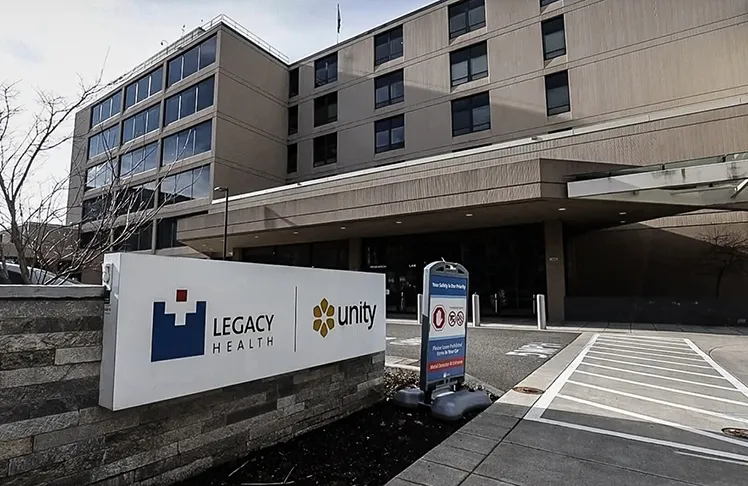
The decision by Multnomah County deputies to withdraw their security services from the Unity Center has compelled sensitive hearings to transition to a virtual format. Tensions regarding whether law enforcement officers should carry firearms inside Portland’s largest mental health facility reached a boiling point last month.
In response to being required to leave their weapons outside when entering the Unity Center for Behavioral Health, Multnomah County sheriff’s deputies announced they would no longer provide security for judicial hearings at the Northeast Portland facility. This shift has necessitated a rapid adjustment to hearings that are crucial as the county seeks to address mental health issues on the streets of Portland.
Established in 2017, the Unity Center is the city’s largest hospital catering to individuals experiencing acute mental health crises. Patients who require commitment, meaning the state places them under involuntary care for up to 180 days, often find themselves at the Unity Center.
Sheriff’s deputies have traditionally ensured security during civil commitment hearings held in a courtroom within the facility. However, their recent withdrawal has forced these hearings online, raising concerns from Disability Rights Oregon, a nonprofit advocacy group representing patients in civil commitment cases.
Multnomah County prosecutors also play a role in these hearings, advocating for patient commitments. Senior Deputy District Attorney Caroline Wong stated that while the office prefers in-person hearings with adequate security, “This is currently not possible.” Both the sheriff’s office and Legacy Health, which operates the Unity Center, have indicated that remote hearings are a practical solution as they navigate the ongoing situation. Other hospitals routinely conduct remote civil commitment hearings.
The Unity Center has maintained long-standing rules requiring police and visitors to store their firearms in lockboxes before entering secure areas. Advocates and officials express concern that the presence of guns in psychiatric wards increases the risk of violence against individuals in crisis. Since 2017, Disability Rights Oregon has been advocating for compliance with the no-guns rule by MCSO deputies.
The sheriff’s office has been discussing potential changes to civil commitment hearings with the Unity Center since late 2023, aiming to establish a new process that considers trauma-informed care, best practices, efficient staffing, and fiscal responsibility. This situation in Multnomah County arises as lawmakers prepare to address civil commitment issues, potentially leading to an increase in hearings at the Unity Center and other locations. For years, judges, prosecutors, and family members of individuals with severe mental illness have urged the Legislature to lower the standards for committing individuals to state custody.
State law permits such commitments when an individual poses a danger to themselves or others, or is at risk of immediate harm due to an inability to meet their own needs. However, advocates for legal reform argue that court decisions have created excessively high barriers to meeting these standards. As the mental health crisis becomes more pronounced across the state, lawmakers are signaling their intention to seriously consider changes this year. A House committee is expected to review proposals aimed at reforming the mental health system later this month.















